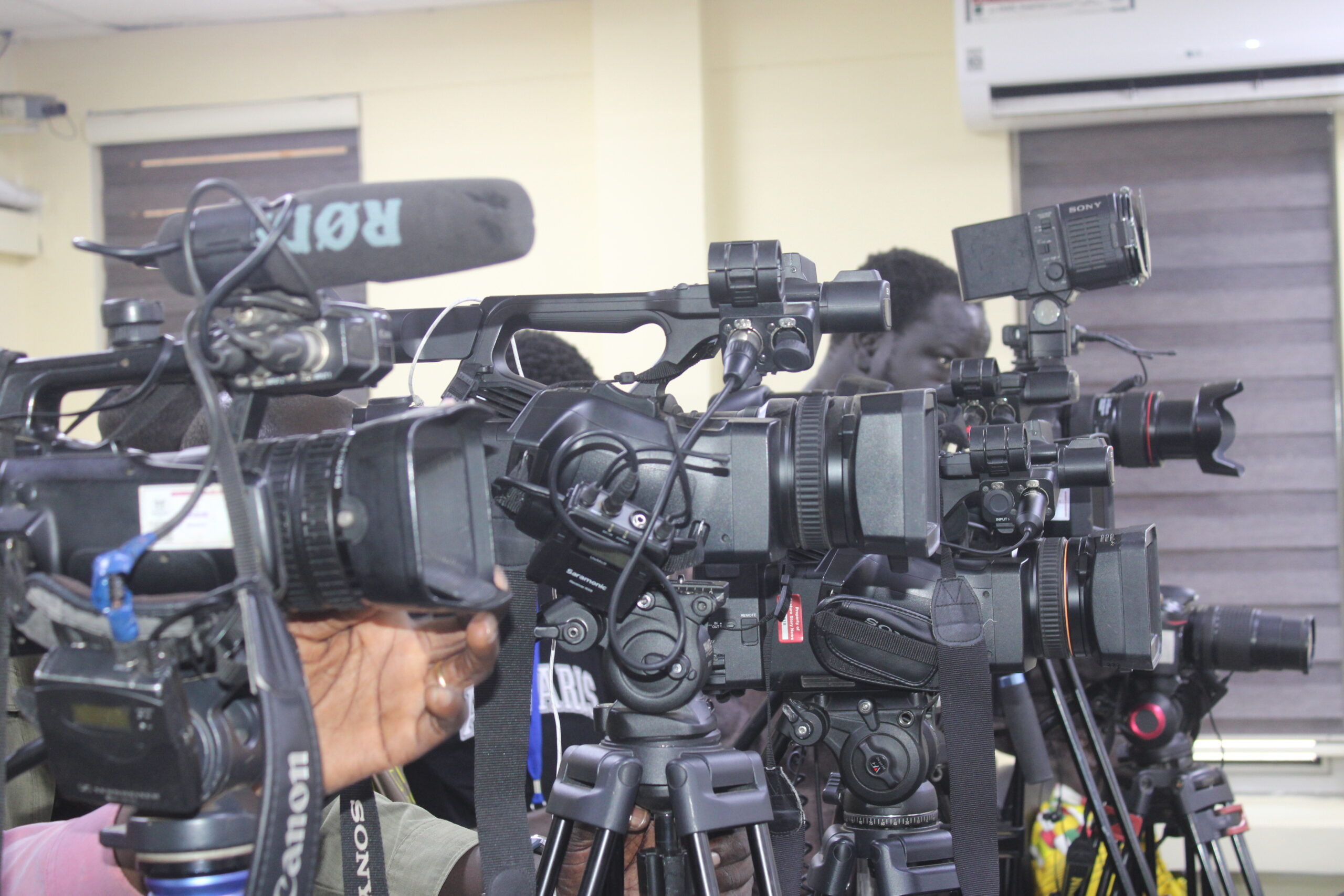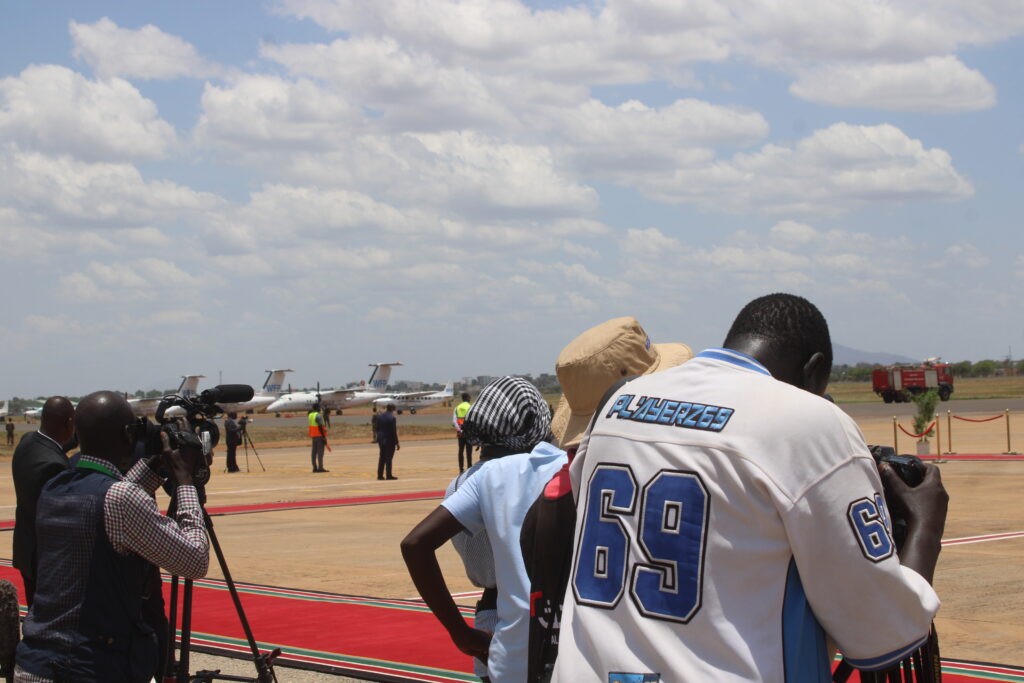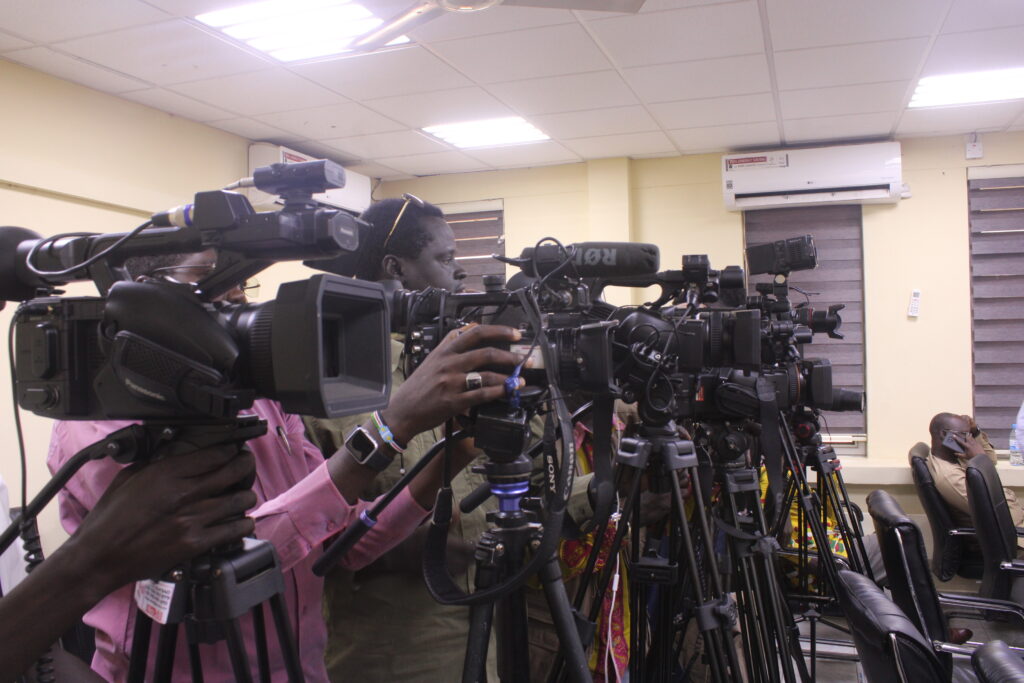South Sudan's English Daily Newspaper
"We Dare where others fear"

By Awan Achiek
Most media outlets in South Sudan are struggling to survive amid a severe economic crisis, and a lack of sufficient funding due to the suspension of support from the United States Agency for International Development (USAID).
Ibasi Patricia, a broadcast journalist, said she previously earned good pay prior to USAID halting funding to her media organization.
“My salary was being paid directly from a USAID project that we were implementing. So this has really affected me so much financially, and it has reached a level whereby I am volunteering,” Patricia told The Dawn last week in Juba.
Patricia said she is unable to sustain her family’s needs after losing her job.
“At some point, I don’t know if I should put it like I’m psychologically affected because I’m looking at my family, who are depending on me so much. I am a mother, I have kids I am paying school fees for,” she disclosed.
“Sometimes you hear your child, who was used to maybe getting something, calling you. I don’t have this in the house. I don’t have money. So you see it’s affecting me, and I’m not able to provide for my family, for my child.”
The Trump administration’s decision to freeze USAID foreign aid for independent media has caused chaos and uncertainty for media organizations in South Sudan.
Major media organizations, including Voice of America (VOA) South Sudan in Focus, Eye Radio, and The Radio Community, are also grappling with the implications of the funding withdrawal.
Denis Logonyi, a freelance journalist working for VOA who has been laid off due to funding shortage, said the shutdown of VOA has not only affected him, but it has also cut off the flow of information in the country.
“The shutting down of VOA is a big blow to the media industry and is a big blow to professional development of the media in South Sudan as far as freedom is concerned,” Logonyi said.
He said it has been very difficult to cope during this economic crisis after losing his job.
“It happened abruptly. We never thought that that would happen to us, and as you know, of course, there are a lot of other shortcomings,” Logonyi said.
“I had saved something for myself that I have been using to push myself for all these days, but still, I don’t know what the future will have for me, because I’m still trying to look for what I can do so that I can be able to keep myself going,” he added.

The majority of media outlets, including private, community-based, and government-state-owned, have been operating under difficult condition due to economic challenges, forcing numerous journalists to lose their jobs.
Stephen Omiri Obuor, Chief Executive Officer of Eye Radio, said advertising income, a key funding source, has dried up as private businesses struggle to survive amid economic and political crises.
“The media in general, even the ones you’re working for, they’re facing financial constraints, the biggest financial constraint in the media industry because the advertising revenue of these countries has gone away, so it’s cut across,” Omiri said.
He said most of the media outlets are not paying their journalists well due to financial constraints.
“It’s not just about the media that are being supported by the other donors, but it’s entirely media, because generally speaking, other media houses are not paying well. They don’t have insurance, they lack a lot of things, and they don’t have protection equipment,” Omiri said, adding that the environment is not conducive for the media to thrive.
Benjamin Takpiny, a senior journalist who has worked with different newspapers for more than 10 years and is currently news manager at The Dawn, said the economic environment makes it difficult for newspapers to generate sufficient revenue through subscriptions, advertising and sales.
“This reduces one of the primary revenue streams for newspapers. Additionally, many international companies are hesitant to advertise in South Sudan due to political and economic uncertainties,” Takpiny said.
In addition, he noted that the high cost of printing is affecting many newspapers that rely on private printing companies.
Takpiny disclosed that political instability has led to disruptions in the operation of newspapers, threatening journalists’ safety and leading to a decline in readership as people focus on survival rather than staying informed.

Irene Ayaa, the Director of the Association for Media Development in South Sudan (AMDISS), stated that the funding freeze has already had a significant impact on several news outlets, resulting in a reduction in access to information.
“We have seen a significant impact already on the media landscape of South Sudan. We have seen a reduction in media programming, especially from community radios that used to receive support from the USA through different projects like the IREC project,” said Ayaa.
Ayaa stated that ADMISS, an umbrella organization that advocates for the rights of media in the country, has lost 80 percent of its funding, which has significantly impacted its operations.
“We used to conduct a lot of activities, even training for journalists and roundtables for advocacy for independent media,” she said.
“We rarely have those kinds of activities now because most institutions do not have funding, including AMDISS, because even at AMDISS, we have lost almost 80% of our funding because we used to get a great deal of our funding from the USA.”
Daniel Majak Kuang, Secretary General of the Union of Journalists of South Sudan (UJOSS), said they are worried about potential risks to press freedom that come with the reduction of donor support.
“To us, we think it is time to think beyond just donor dependency and work towards a sustainable, locally driven media development,” Majak said.



